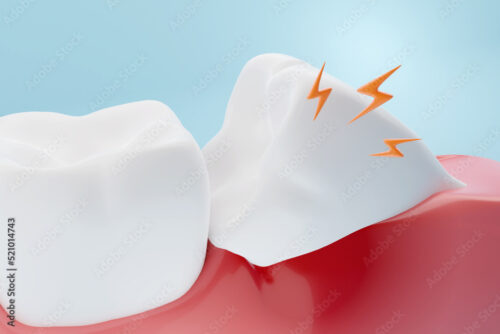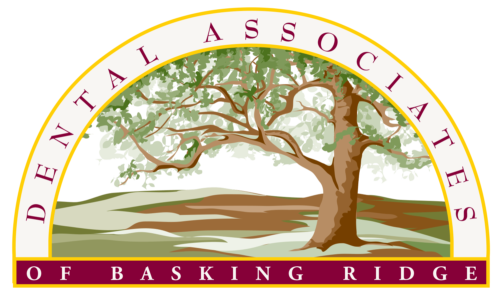
Regular dental checkups are extremely important as they allow dentists to detect any oral issues early on. Early detection helps dentists effectively treat the issue and prevent further damage. If you have an impacted tooth, your dentist can provide you with a treatment plan as you may require extraction surgery or need an eruption aid. Keep reading to learn about impacted teeth and discover how our talented general dentistry/dentists located in Basking Ridge & Morristown, NJ can help you today.
What is an impacted tooth?
An impacted tooth is a tooth that is stuck in gum tissue or bone as it has been blocked from breaking through for various reasons. Sometimes a tooth may be only partially impacted, meaning it has started to break through but has not fully erupted. Often, an impacted tooth results when there is overcrowding and no room for teeth to emerge. Typically, wisdom teeth commonly result from impaction as they are the last teeth to grow which can often leave them with insufficient room to grow into their proper positions. Fortunately, wisdom teeth are not needed, which is why they are typically extracted. Oftentimes, individuals with smaller jaws will have impacted wisdom teeth as their jaw cannot accommodate them. The maxillary canines are also often impacted as there may be extra space in the maxillary bone.
What are some symptoms of impacted teeth?
If you are suffering from a fully impacted tooth you may not experience any symptoms. However, in some instances, if you suffer from a partially impacted tooth, the symptoms may include:
- Halitosis
- Irritated, swollen, or bleeding gums
- Unpleasant taste in your mouth
- Jaw tension (difficulty opening your mouth)
- Pain when opening your mouth (chewing or biting)
- Pain or tenderness in the gums or jawbone
- Prolonged headache or jaw ache
Depending on the severity of the impaction, you may experience symptoms for a couple of weeks. That is why as soon as you experience any symptoms you should visit your dentist. It is imperative to regularly visit your dentist for check-ups as early detection can prevent serious oral health issues.
If you do not have your impacted teeth treated, you risk serious oral health complications such as cavities, decay, periodontal disease, and crowding of nearby teeth. Additionally, it can cause cysts to develop which can damage the roots of nearby teeth and destroy the bone. Therefore, if you suspect you have an impacted tooth, you should schedule a visit with your dentist as soon as possible. They will examine your teeth and take an X-ray of your mouth to determine if you suffer from an impaction. If they discover your symptoms are due to an impacted tooth they may simply monitor it until it erupts or must be surgically removed. Typically, in more severe cases, your dentist will perform extraction surgery to remove the impacted tooth. Extraction surgery is usually performed in the case of impacted wisdom teeth. When the canine’s teeth are impacted, dentists often use eruption aids that get the tooth to erupt properly. If a tooth erupts properly there is no need for extraction.
For more information, schedule an appointment with one of our skilled and trusted dentists. Our team is committed to helping our clients maintain their oral health.






